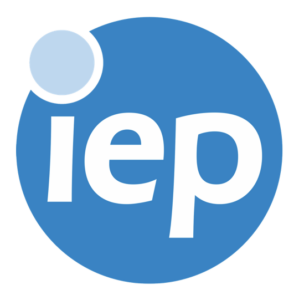Artificial intelligence (AI) is revolutionising various industries, and the Employment Services sector is no exception. From streamlining recruitment processes to enhancing job-seeker experience, AI is reshaping how Employment Services operators deliver their services to clients. Here are the top 10 things you need to know about AI in Employment Services.
1. Enhanced Job-Seeker Matching
Traditional recruitment processes often involve manual screening of resumes and job applications, which can be time-consuming and prone to bias. AI-powered algorithms can analyse vast amounts of data to match job seekers with job opportunities more accurately. By considering factors such as skills, experience, and cultural fit, AI helps recruiters identify the most suitable job seekers efficiently.
2. Personalised Job Recommendations
AI algorithms can leverage data analytics to provide personalised job recommendations to job seekers based on their preferences, skills, and career goals. By understanding the unique needs of each individual, AI-driven platforms can suggest relevant job openings, increasing the likelihood of successful placements and job satisfaction.
3. Automated Sourcing and Outreach
Searching for qualified candidates and reaching out to them can be tedious tasks for recruiters. AI tools can automate these processes by scanning online profiles, social media platforms, and job boards to identify potential candidates. AI-powered chatbots can engage with candidates, answer their questions, and schedule interviews, freeing up valuable time for recruiters to focus on strategic tasks.
4. Predictive Analytics for Talent Management
Predictive analytics algorithms enable hiring organisations to forecast future workforce trends, such as employee turnover and skills gaps. By analysing historical data and current trends, AI systems can help employers make informed decisions regarding recruitment, training, and succession planning, ensuring the long-term viability of their workforce.
5. Bias Mitigation in Hiring
Unconscious bias in recruitment can lead to disparities in hiring outcomes, limiting diversity and inclusion within organisations. AI technologies are designed to mitigate bias by focusing solely on objective criteria when evaluating candidates. By removing human judgement from the initial screening process, AI helps promote fairness and equality in hiring practices.
6. Skill Gap Identification and Training Recommendations
As job roles evolve in response to technological advancements, there is a growing need for upskilling and reskilling of job seekers. AI tools can assess the skills of existing job seekers and identify areas where additional training is required to meet the demands of emerging roles. Moreover, AI-driven platforms can recommend personalised training programs and learning resources tailored to each job seeker’s skill gaps and career aspirations.
7. Efficient Onboarding
AI-powered chatbots and virtual assistants can streamline the employee onboarding process by providing new hires with relevant information, answering their queries, and guiding them through various administrative tasks. By automating routine onboarding procedures, hiring organisations can ensure a smoother transition for new employees and enhance their overall experience.
8. Performance Monitoring and Feedback
AI technologies enable continuous performance monitoring by analysing real-time data from various sources, such as communication metrics, Interview feedback, and peer reviews. This allows Career Advisors to identify performance trends, provide constructive feedback, and facilitate ongoing development conversations with their clients.
9. Adaptive Learning Platforms
AI-powered adaptive learning platforms personalise the learning experience for Job seekers by dynamically adjusting the content and pace of training modules based on individual learning styles and progress. By catering to the specific needs and preferences of each Job Seeker, these platforms optimise knowledge retention and skill acquisition, resulting in more effective training outcomes.
10. Ethical Considerations and Data Privacy
While AI offers numerous benefits for Employment Services operators, it also raises important ethical considerations related to data privacy, transparency, and accountability. Employment Services organisations must ensure that any AI algorithms they use are designed and deployed in accordance with ethical principles, respecting the privacy rights of Job seekers. Additionally, transparency in AI decision-making processes is essential to build trust and mitigate concerns about algorithmic bias or discrimination.
In conclusion, artificial intelligence is starting to transform elements of client solutions in the Employment Services sector. By harnessing the power of AI technologies, operators can improve the efficiency, fairness, and effectiveness of their client services. However, it is crucial to approach AI implementation with careful consideration of ethical implications and a commitment to upholding principles of fairness, diversity, and transparency. Embracing AI responsibly can unlock new opportunities for Employment Services operators to Improve client experience and employment outcomes, where everyone benefits.

